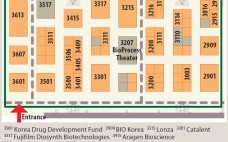Not too long ago, many bioprocessing professionals perceived the annual BIO International Convention as an event about biotechnology business, financial matters, investing, and partnering — and until not too long ago, for the most part, that was correct. In 2007, the Biotechnology Industry Organization and BioProcess International formed a partnership to create a dedicated destination where bioprocessing professionals could learn about the latest technologies and trends in biopharmaceutical development and manufacturing. Thus was born the BioProcess Theater and Zone. Every…
May 2015 Supplement
To Serve and Promote: A Conversation with BIO’s President and CEO
BIO is the world’s largest trade association representing biotechnology companies, academic institutions, state biotechnology centers and related organizations across the United States and in more than 30 other nations. BIO members are involved in the research and development of innovative healthcare, agricultural, industrial, and environmental biotechnology products. BIO plays a leading role in shaping public policy related to the biotechnology industry — at the state, national, and international levels. Jim Greenwood has been BIO’s president and CEO for 10 years,…
BioProcess Theater: Analytical Services
BioProcess International launched about the same time as a major FDA regulatory announcement that has radically altered biopharmaceutical development: The quality by design (QbD) initiative is an important part of the agency’s 21st-century good manufacturing practice (GMP) approach, which is changing how regulators review product applications and thus how companies must approach them (1). It has placed increasing pressure on analytical laboratories, whose work is more important to the success of biotherapeutic products than ever before. Backed by harmonized tripartate…
BioProcess Theater: Cell-Line and Process Development
Process development forms the core of BioProcess International’s coverage and interests. From cell-line engineering through seed-train and production cultures, the results of which are harvested and purified to yield a bulk drug substance, every biologic therapy and vaccine begins its life at small scale in a research and development laboratory.Cell lines may be mammalian, insect, microbial, or even plant-sourced (1). They all require different types of culture media and supplements. And purification options are many and diverse. Process intermediates are…
BioProcess Theater: Roundtable
Stretching for the Trifecta Innovative Strategies for Speeding Development, Lowering Costs, and Enhancing Quality On Tuesday 16 June 2015, at noon on the BioProcess Theater stage at BIO 2015, Tom Ransohoff (vice president and principal consultant at BioProcess Technology Consultants, Inc.) will moderate a roundtable discussion with the following panelists: Mark Brower (senior research chemical engineer, Merck & Co.) Parrish Galliher (Xcellerex founder and chief technology officer, GE Healthcare) Joanne Beck (senior vice president of process development, Shire) Lynne Frick…
BioProcess Theater: Formulation, Fill and Finish
Fragile proteins and other biomolecules need protection as stable drug products. The larger a molecule is, the more difficult it will be to make, ship/store, and administer to patients. Biotech drug formulators have many concerns to juggle in their work, beginning with the physicochemical characteristics of an active molecule and including the reliability, cost, and availability of analytical methods; the array of excipients and adjuvants on the market; evolving delivery methods and devices; patient preferences and behavior, as well as…
BioProcess Theater: Clinical and Commercial Manufacturing
When it comes to clinical and commercial manufacturing of therapeutic products, outsourcing is an integral part of the biopharmaceutical industry. In the 21st century, product sponsors are increasingly relying on expert contract assistance in process development and production of clinical and commercial materials. Many companies are reaching beyond their local and national borders to extend networks of partnerships into emerging markets, particularly in Asia (1, 2). Most biologics are proteins, with monoclonal antibodies (MAbs) dominating the scene over a number…






